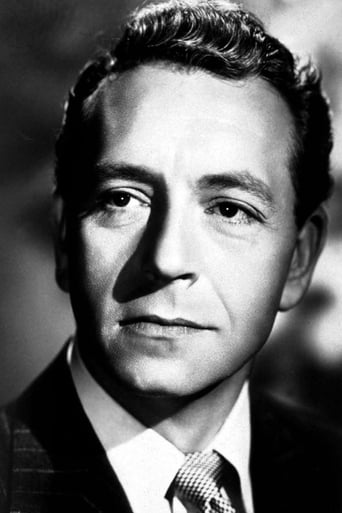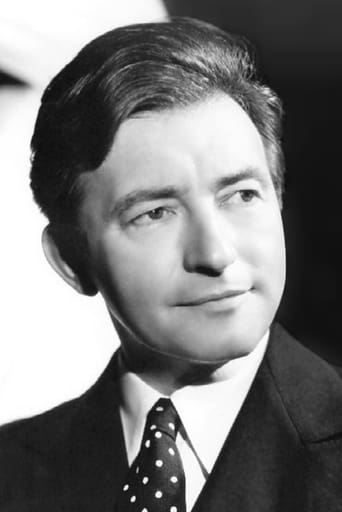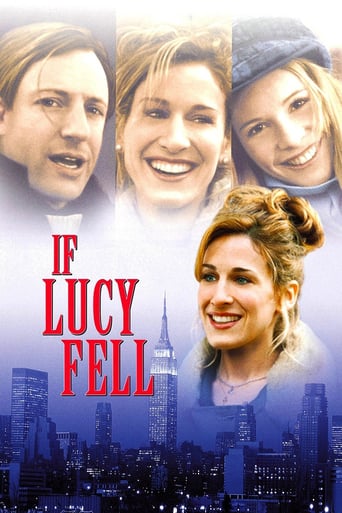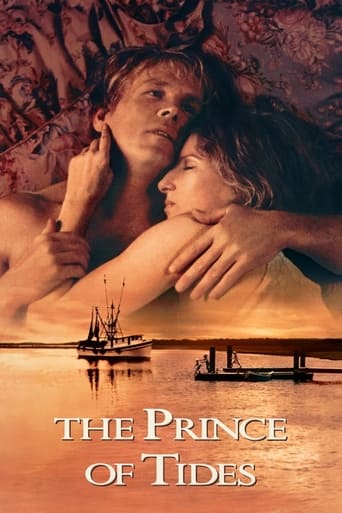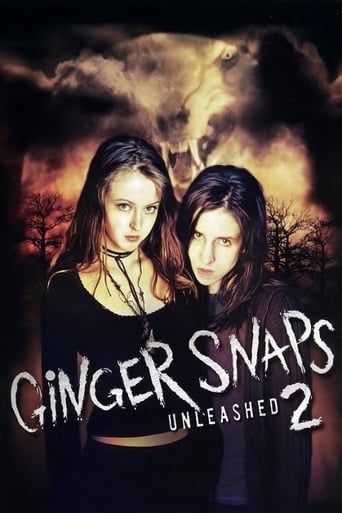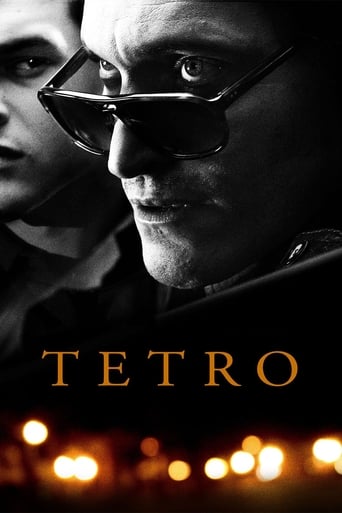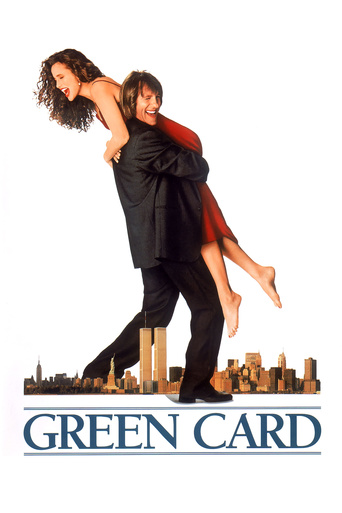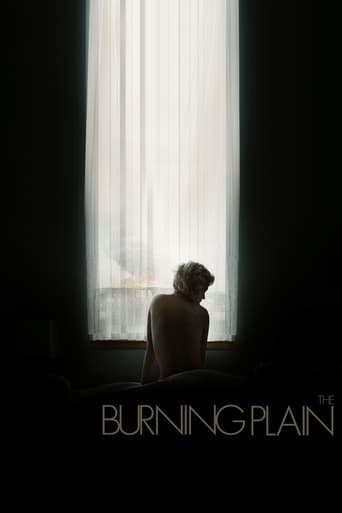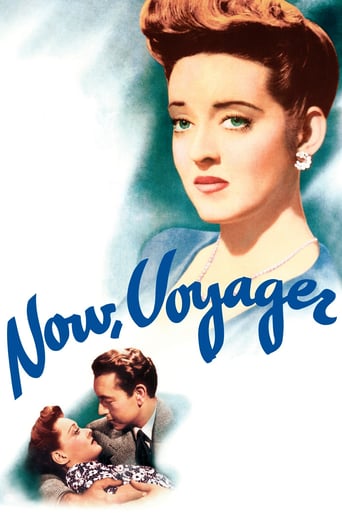
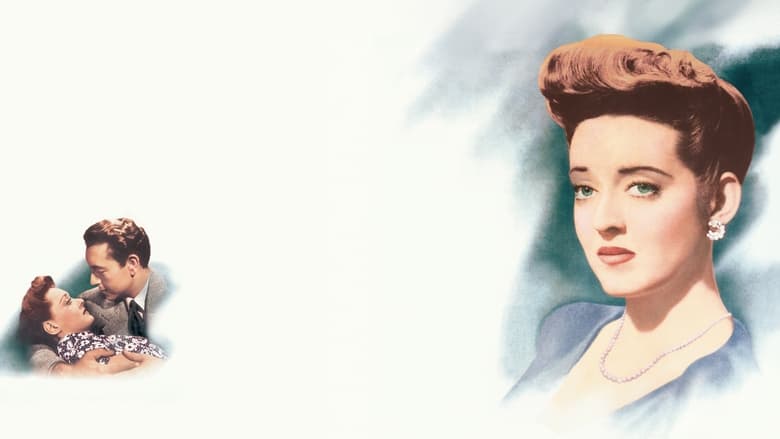
Now, Voyager (1942)
A woman suffers a nervous breakdown and an oppressive mother before being freed by the love of a man she meets on a cruise.
Watch Trailer
Cast
Similar titles


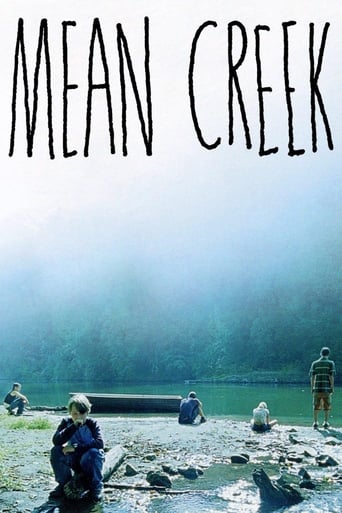
Reviews
Undescribable Perfection
Best movie ever!
Although it has its amusing moments, in eneral the plot does not convince.
A film of deceptively outspoken contemporary relevance, this is cinema at its most alert, alarming and alive.
This film tugs on a few different heartstrings, with themes of a domineering mother, being an awkward, depressed young person, finding a deep connection and love with someone who can't be yours, and then personally evolving to the point of being able to transcend all of that, and finding one's path. It's really quite a touching film, and Bette Davis turns in another brilliant performance. The supporting cast around her is strong as well, and features Gladys Cooper (her mother), Paul Henreid (her lover), Claude Rains (her wise doctor). And, how fascinating is it that both Henreid and Rains began filming Casalanca immediately afterwards; clearly a great year for them.The film scores points for me for having its title come from a Walt Whitman line in 'Leaves of Grass': "The untold want by life and land ne'er granted; Now, Voyager sail thou forth, to seek and find," which is appropriate. The film speaks to being honest with oneself, to one's identity, as well as to the person you love, even if it's complicated. I loved the little touches of the inner voice that director Irving Rapper employs, which helps underscore this.It's heartwarming to see how those in love make each other better people. She begins to bloom, and radiate confidence after receiving simple acts of kindness and appreciation. He returns to his passion, architecture, and is more empathetic and understanding of his troubled daughter. The scene where they meet by chance again at a party, and have a conversation interlaced with whispered remarks of tenderness (such as her saying to him she could "cry with pride" over him following his dream) is lovely.At the same time, she's not defined by him, or dependent on him. In fact, the movie is a celebration of independence, and shows how it can be done gracefully and with class. Her strength come through in so many ways: in standing up to her mother, determining her path with another suitor, asserting herself with her old doctor, and ultimately deciding the terms she'll have her relationship with Henreid on. While she admits that "I've just been a big sentimental fool. It's a tendency I have," she also calmly says "Please let me go" when a big romantic moment threatens to sweep her away.The story about his child was touching, as we see Davis help her, as she was once helped, but I thought this part dragged on too long, and needed tightening up. It felt overly melodramatic and false; for one thing, where was the mother? There was a much earlier scene with a Brazilian taxi driver that got silly, and should have been left on the cutting room floor as well. On the other hand, I loved those last lines. He asks her, "And will you be happy, Charlotte?" And she responds "Oh Jerry, don't let's ask for the moon. We have the stars." How brilliant that line is; there is something larger than ourselves, larger than what others consider happiness.
Now, Voyager stars Bette Davis as Charlotte Vale. An ugly duckling with a domineering mother (Gladys Cooper) who has kept her repressed.With the help of Dr Jaquith (Claude Rains) a kindly psychiatrist in his sanitarium, she transforms from a dowdy frump to an elegant woman who goes on a cruise to establish her independence. She begins a tentative love affair with a fellow passenger, Jerry Durrance (Paul Henreid) who is also unhappily married. When Charlotte returns he arrives home, her family is stunned by the dramatic changes in her appearance and her mother is determined to destroy her confidence as well as her independence.When her mother dies, Charlotte returns to the sanitarium because of guilt where she helps out a young girl with low self esteem and confidence issues. She turns out to be Jerry's daughter, by the end both Jerry and Charlotte seem to settle for a platonic affair.This is a soapy melodrama with what looks like a gay subtext. Charlotte even turns down a proposal of a marriage of convenience from another suitor.However this is a soggy script where nothing much happens in its running time once Charlotte has transformed. This is because the Hays Code makes it difficult for Charlotte to have a happy ending with an adulterous liaison with a married man. At least the cast have enough chemistry to carry off the film.
I'm not going to be repetitive here. If you want to know about the plot, there is a summary on the first screen.What's amazing about this film is the chemistry between Paul Henreid and Bette Davis, and the sexual sparks fly off the screen.Davis, a unique-looking actress, looked sleek as a cat in this film. No actress ever had such a feline way of walking as Davis did. Her wardrobe was designed by the legendary Orry Kelly, who won an Oscar for the exquisite gowns Davis wore in the film.Henreid was never so smoulderingly sexy as he was in this film. The classic cigarette-lighting scenes set the screen on fire.A story of love, passion and self discovery, this is a classic film and a must-see. Now go do it.
. . . but it certainly qualifies as the most fabulous effort to get young teens hooked on Cancer--I mean, addicted to cigarettes (a.k.a., "coffin nails")--ever to hit the Big Screen. I doubt very much that novelist Olive Higgins Prouty dashed off a tale about cool lovers lighting up Kools, Old Golds, Chesterfields, Pall Malls, Winstons, Kents, Camels, etc., after deciding that turning their windpipes into blackened chimneys was the most nurturing thing that they could possibly do with their affections. Of course, Big Tobacco was not bribing Ms. Prouty with untold billions of off-the-books cash, as they did with the Hollywood moguls for decades. If you cut the smoking scenes from NOW, VOYAGER, you'd be left with a much shorter flick constituting an incoherent mess. NOW, VOYAGER was released during WWII, which invites comparison to another propaganda masterpiece deserving a rating of "10," since it also was extremely effective in getting across its single-minded message, the Magnus Opus of Hitler's personal Videographer (Leni Riefenstahl), known here as TRIUMPH OF THE WILL. Even if you blame Mr. Hitler for ALL 100 million WWII deaths, his toll pales in comparison with the more insidious carnage wreaked over the centuries by Big Tobacco. As BT's primary propaganda arm, Hollywood could be responsible for the lion's share, including many limbs of MY family tree. NOW, VOYAGER may have doomed some of YOUR direct ancestors, as well.

